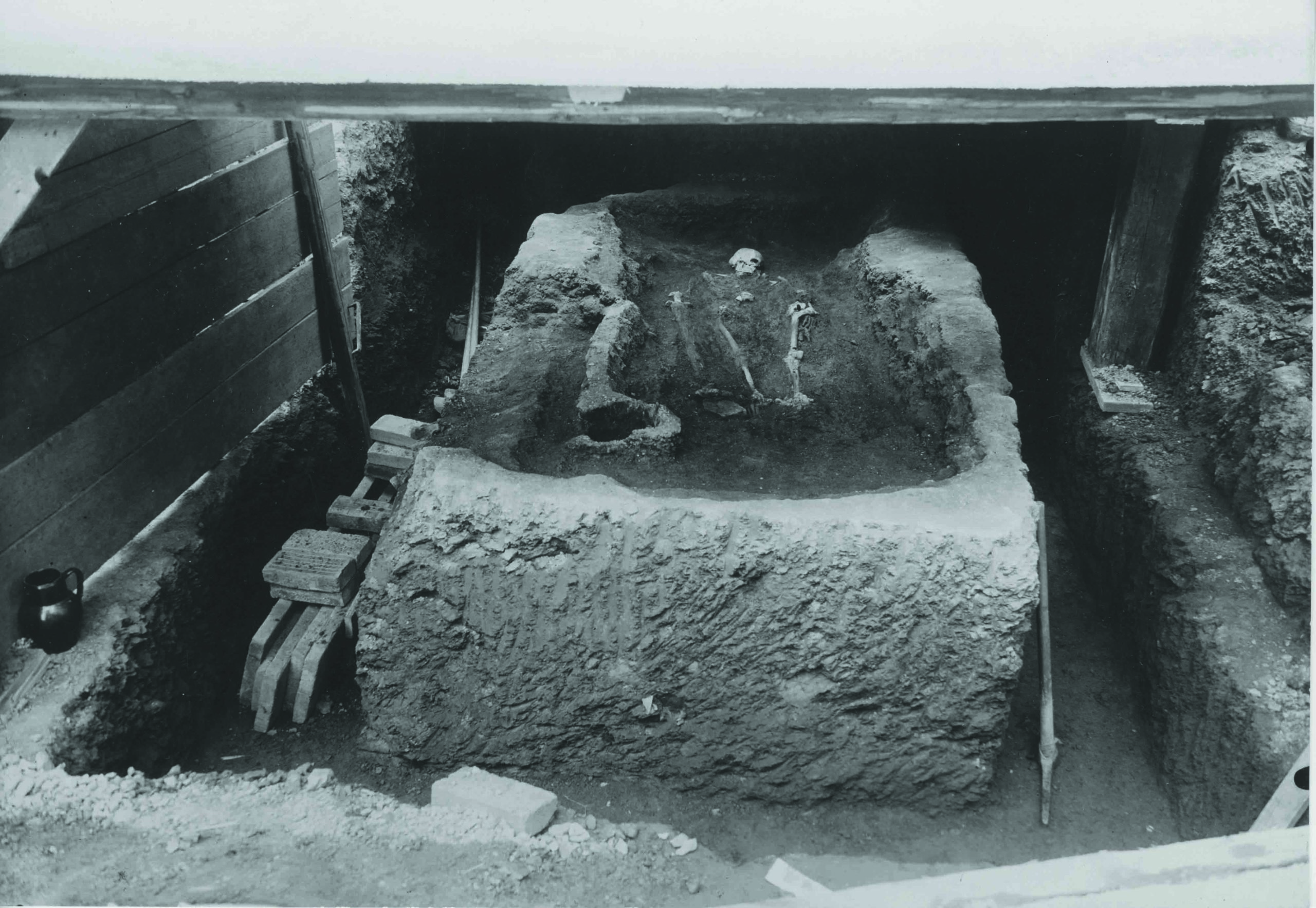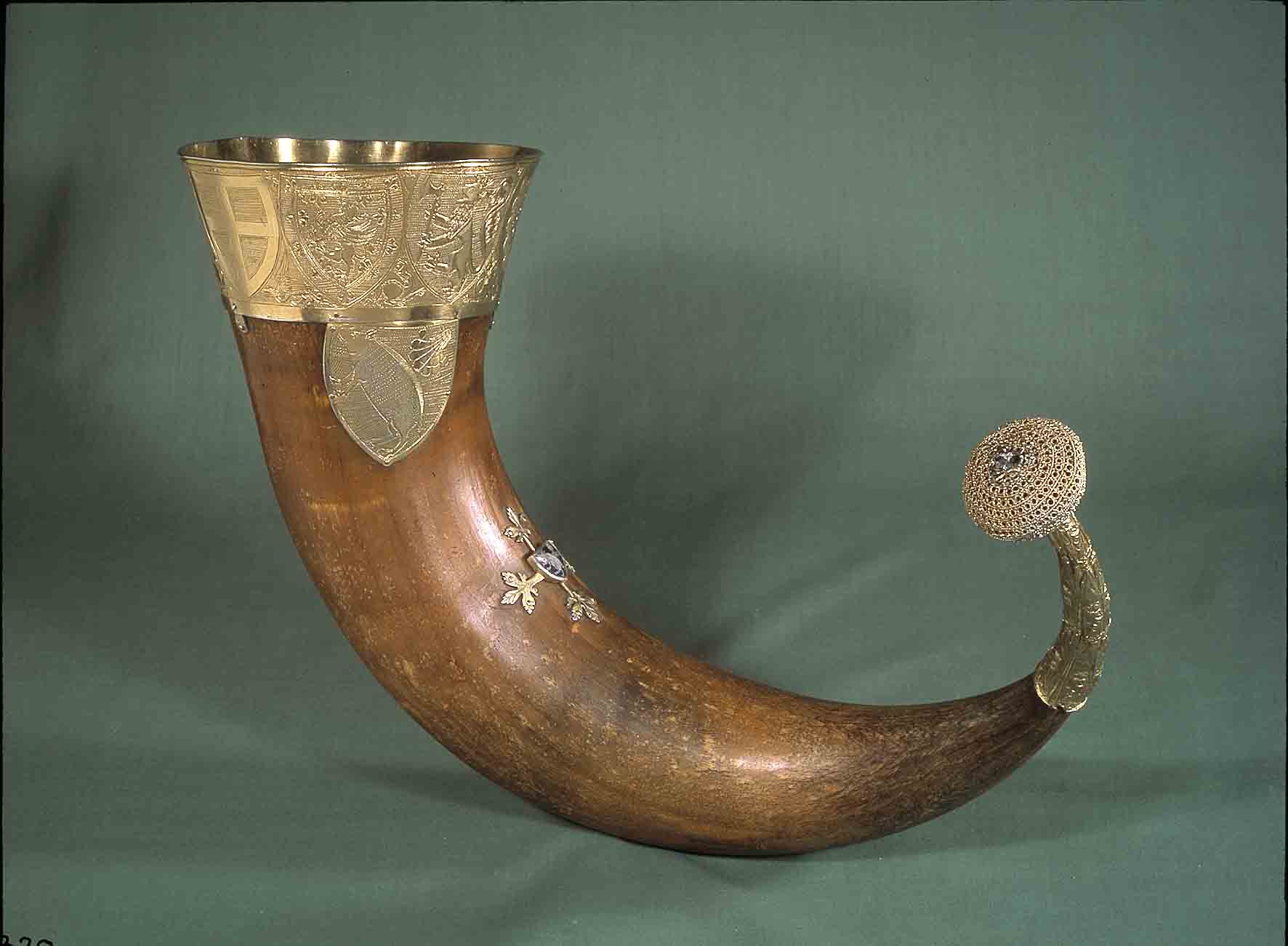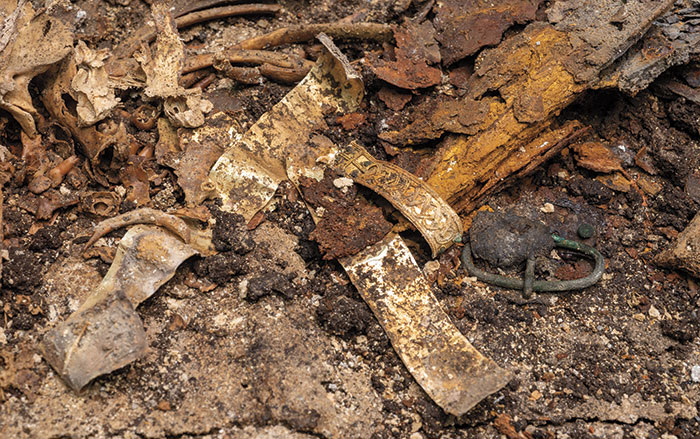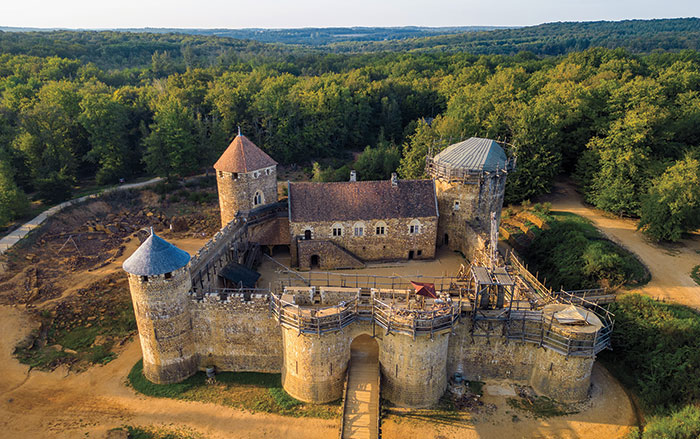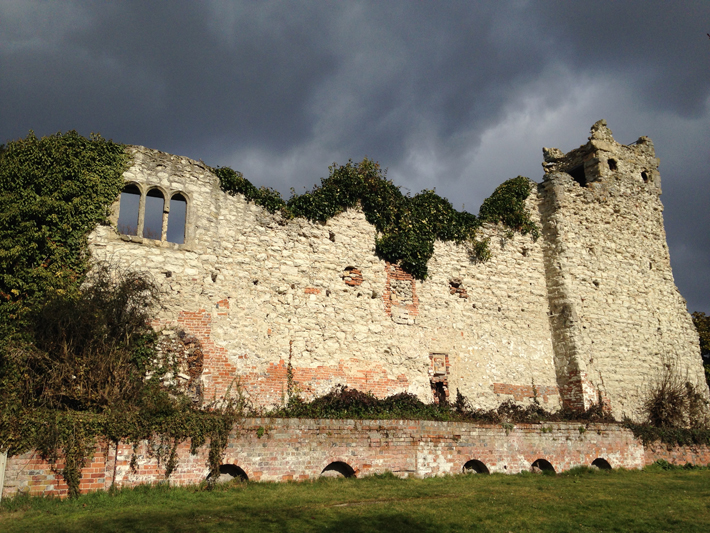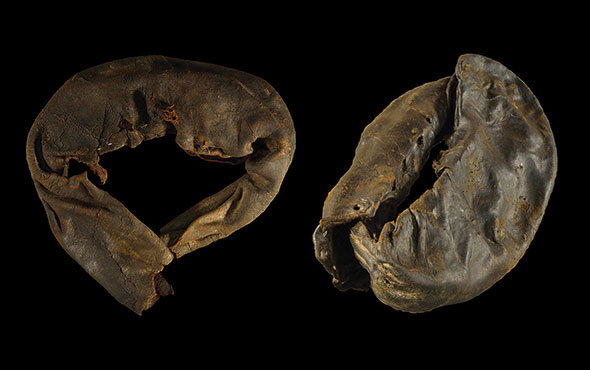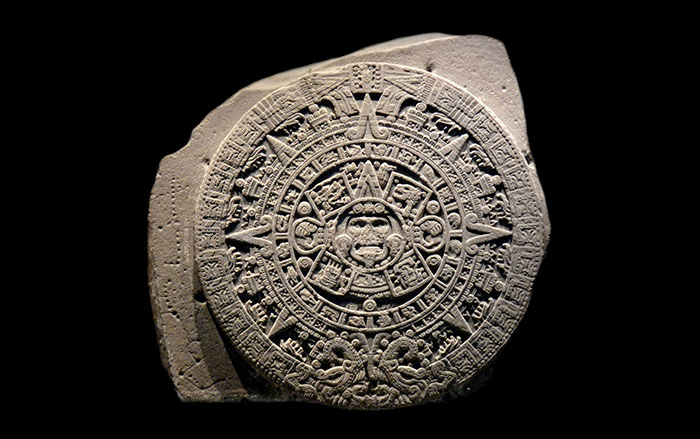
NIEDERSTOTZINGEN, GERMANY—Science Magazine reports that analysis of DNA samples taken from the 1,400-year-old remains of ten Germanic, noble warriors and three children discovered in southern Germany suggests that some of them had been born locally, while others may have originated in different parts of Europe. The study, led by Niall O’Sullivan, now of the Max Planck Institute for the Science of Human History, also revealed that at least 11 of the individuals were male—the test results of the remaining two were inconclusive. Overall, five of the individuals in the sample were directly related to each other, but three people who had been buried in the same grave were unrelated. One of them had DNA associated with people from northern, eastern, and central Europe, while the other two had DNA suggesting they were related to people from southern Europe. Analysis of isotopes obtained from their teeth suggests that only one of the two individuals with southern European relatives grew up in the same area as the burial. O’Sullivan and his colleagues wonder whether the Germanic warriors may have welcomed foreigners into their households, or whether it is possible they adopted child hostages for use in intertribal negotiations. To read in-depth about a Roman settlement in Germany, go to “The Road Almost Taken.”


